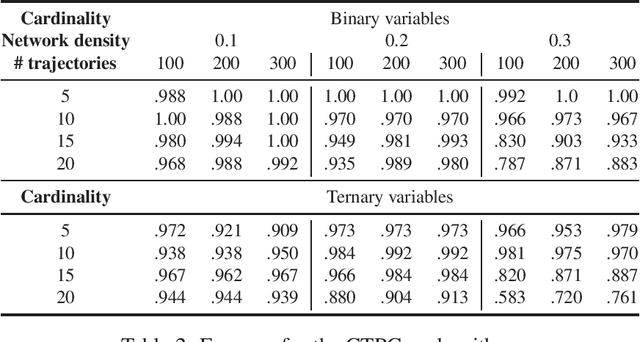Alessandro Bregoli
Analyzing Complex Systems with Cascades Using Continuous-Time Bayesian Networks
Aug 21, 2023



Abstract:Interacting systems of events may exhibit cascading behavior where events tend to be temporally clustered. While the cascades themselves may be obvious from the data, it is important to understand which states of the system trigger them. For this purpose, we propose a modeling framework based on continuous-time Bayesian networks (CTBNs) to analyze cascading behavior in complex systems. This framework allows us to describe how events propagate through the system and to identify likely sentry states, that is, system states that may lead to imminent cascading behavior. Moreover, CTBNs have a simple graphical representation and provide interpretable outputs, both of which are important when communicating with domain experts. We also develop new methods for knowledge extraction from CTBNs and we apply the proposed methodology to a data set of alarms in a large industrial system.
Constraint-Based Learning for Continuous-Time Bayesian Networks
Jul 07, 2020


Abstract:Dynamic Bayesian networks have been well explored in the literature as discrete-time models; however, their continuous-time extensions have seen comparatively little attention. In this paper, we propose the first constraint-based algorithm for learning the structure of continuous-time Bayesian networks. We discuss the different statistical tests and the underlying hypotheses used by our proposal to establish conditional independence. Finally, we validate its performance using synthetic data, and discuss its strengths and limitations. We find that score-based is more accurate in learning networks with binary variables, while our constraint-based approach is more accurate with variables assuming more than two values. However, more experiments are needed for confirmation.
 Add to Chrome
Add to Chrome Add to Firefox
Add to Firefox Add to Edge
Add to Edge